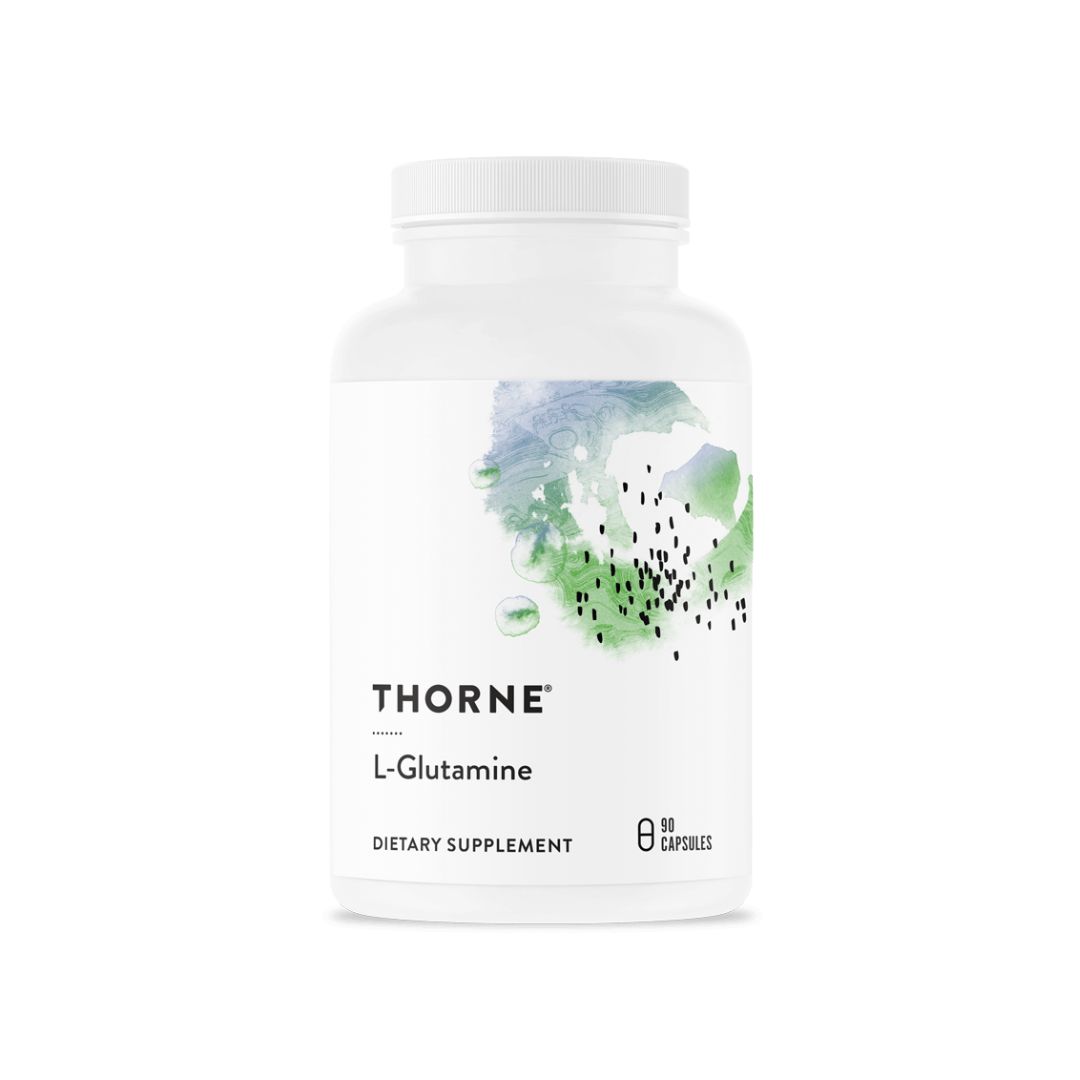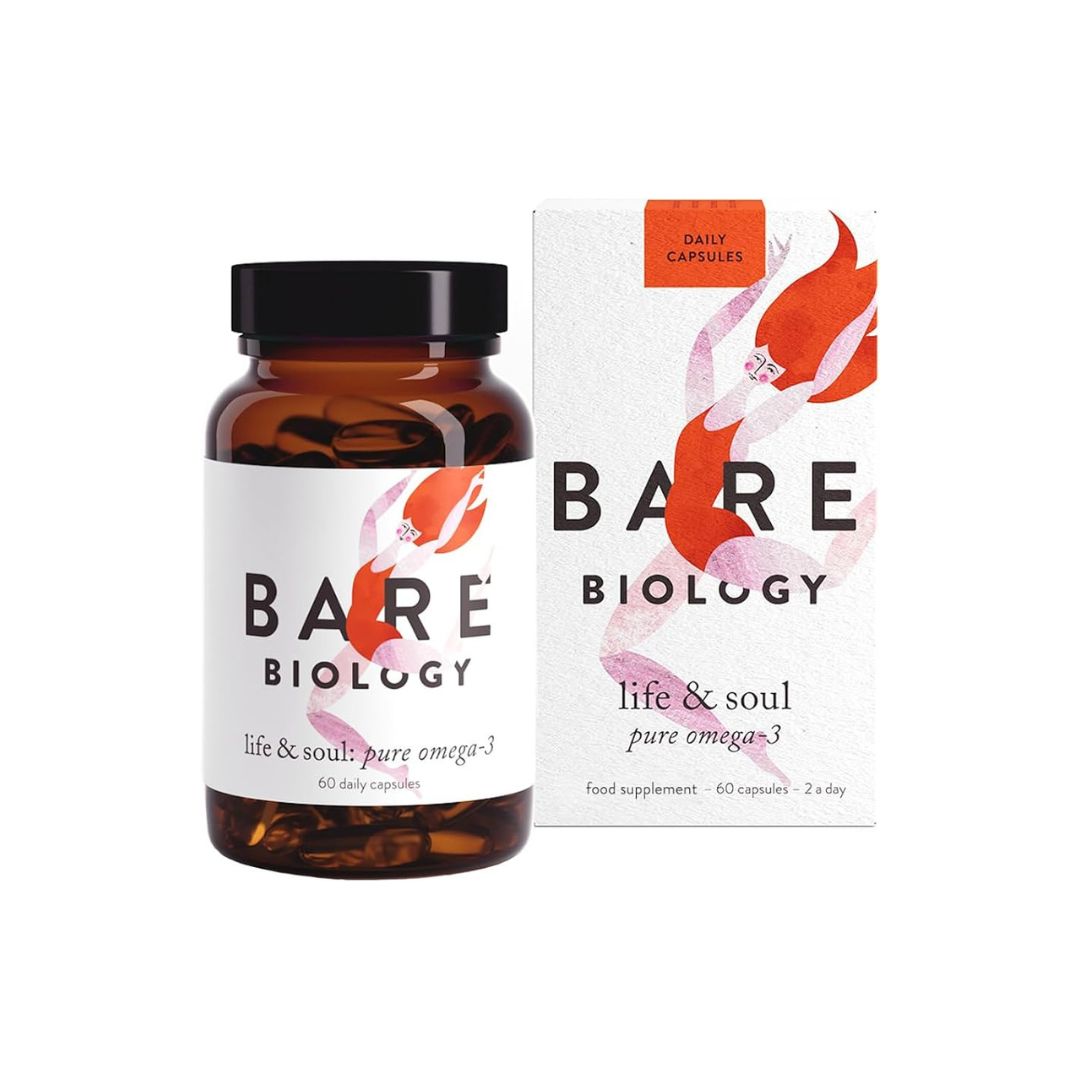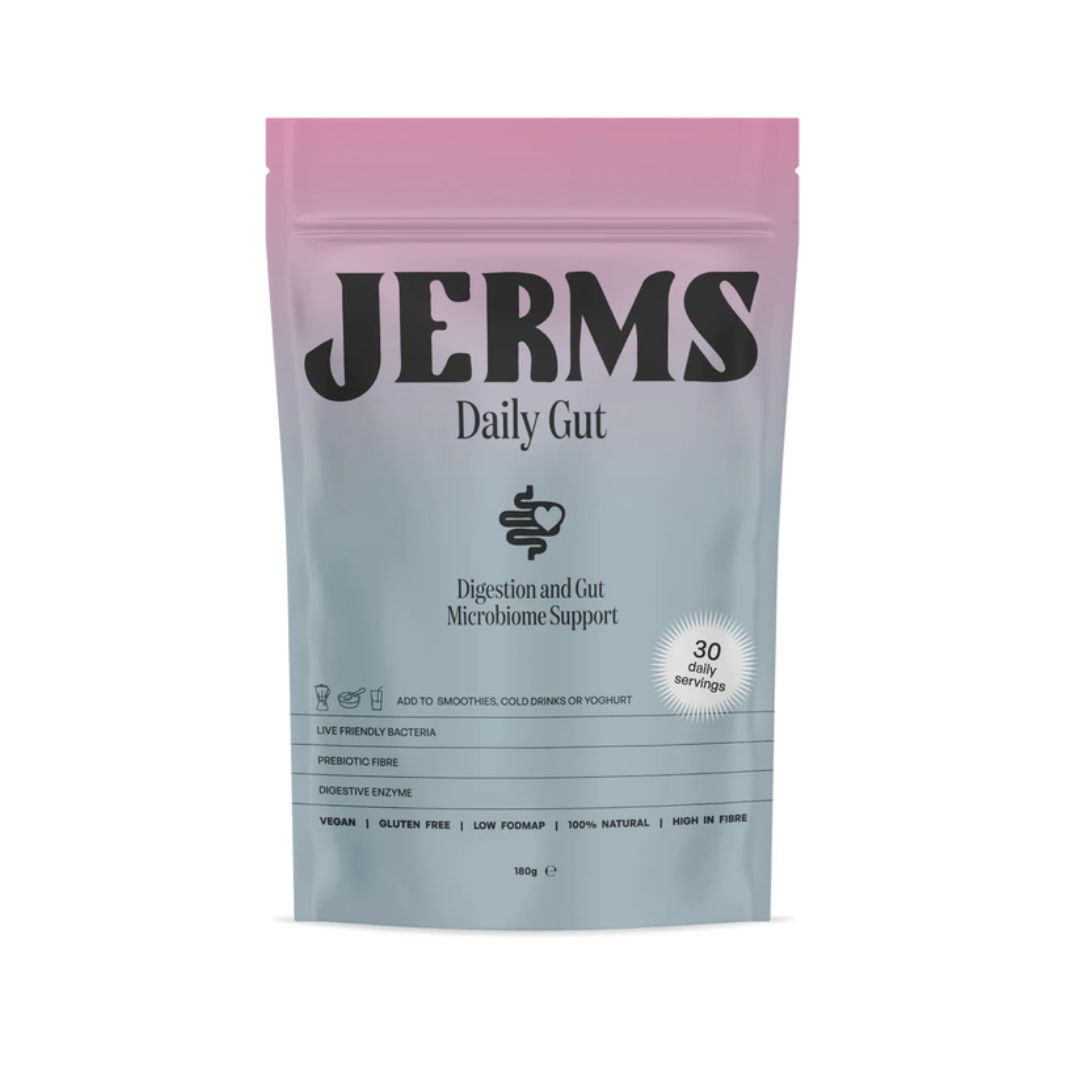You're going to hear even more about leaky gut in 2024 – here's how to tell if you have it
Time to investigate the viral phenomenon.


Let's talk about leaky gut - because, if there's one phrase used liberally and without much rigour in the wellness world, it's this one. Often described as the root cause of several issues, including skin conditions like eczema but also low mood, fatigue, lethargy and headaches, to name a few, leaky gut is, seemingly, everywhere.
While the body of research continues to grow, there's plenty of evidence to prove that gut health can impact things like your skin, mood, weight, and more. M&S and Zoe even launched a world-first gut shot with billions of live cultures designed to boost your gut microbiome last week. So it's no wonder that people are looking for ways to boost - and safeguard - their microflora and fauna.
That said, there's debate in the wellness industry about leaky gut in particular. Some question whether there's enough scientific evidence to conclusively prove it exists, with other experts criticising the many on TikTok who seem to have self-diagnosed.
Keen to read more and hear what the qualified experts have to say? Keep scrolling - and don't miss our guides to unhealthy gut symptoms, gut health hacks, and read more about the link between gut health and weight loss, while you're here.
Leaky gut is trending - but does it actually exist?
What is leaky gut?
Shall we begin with the science? Your gut, the part of your body that’s responsible for everything from serotonin production (aka the happiness hormone), to digesting and absorbing the nutrients we consume from food, is huge. 4,000 square feet, to be exact. A semi-permeable barrier between the food we eat, our bloodstream and the rest of our body, the surface area of our intestines is ginormous.
When our digestive system is working optimally, the gut (intestinal) wall will allow water and nutrients to pass from the gut through to the bloodstream. This is how we absorb the good stuff from our diet and supplements. But, when this wall is more permeable than it should be, inflammatory molecules like food particles, toxins and bacteria are allowed to pass through, triggering an immune response in the body.
“This breach in the intestinal barrier is what we call a leaky gut,” explains Dr Mayoni Gooneratne, a former NHS colorectal and pelvic floor surgeon and founder of Human Health™ by The Clinic. “Leaky gut syndrome is a term sometimes used to describe associated symptoms.”
Marie Claire Newsletter
Celebrity news, beauty, fashion advice, and fascinating features, delivered straight to your inbox!
So what happens when our gut wall is compromised and begins to leak waste products into the rest of our body? According to anecdotal reports on social media, everything from eczema to exhaustion, headaches, weight gain and chronic bloating. But, the medical community is far less certain, saying that leaky gut is, in fact, a cluster of gut symptoms, not a diagnosis or recognised condition.
@gracie_norton ♬ original sound - Gracie Norton
Yep, you read that right. While it's commonly referred to as a syndrome, leaky gut is, in fact, a clump of symptoms that indicate gut issues, not a one-and-done diagnosis. If one were to truly have a leaking gut, the consequences would be so severe as to necessitate medical intervention, explains Sophie Medlin, consultant dietician and head of nutritional research at supplement brand Heights.
“While leaky gut is a condition widely diagnosed and used as a means to sell supplements and remedies by the alternative medicine community, as a registered dietitian and someone who has worked in gut health for over 17 years, it isn’t a diagnosis I have ever made or one that we consider to be valid in conventional medicine,” she shares with Marie Claire UK.
“While a compromised intestinal barrier can certainly exist, we only see this being problematic in those with diseases of inflammation in the gut like Crohn’s disease and coeliac disease.”
So, if the condition is medically and scientifically cloudy, why are so many people sure that they have it?
What are leaky gut symptoms?
The symptoms of leaky gut are so wide-ranging and all-encompassing that it makes sense so many people feel they are experiencing the hypothetical condition.
To name a few:
- Bloating
- Fatigue
- Food sensitivities
- Digestive issues
- Aches and joint pain
- Hormonal imbalances
- Brain fog
- Mood imbalances or swings.
According to a report by Core, a UK charity funding research into gut, liver, intestinal and bowel illnesses, four out of ten people in the UK experience occasional bloating, with women experiencing digestive discomfort, constipation, bloating and stomach pain at higher rates than men. This reality, that women are in digestive discomfort can lead to self-diagnosis of conditions like "leaky gut." But, as a hypothetical condition (something that is not verified or recognised by the medical community), can leaky gut ever be diagnosed?
How can leaky gut be diagnosed?
As we touched on before, a truly leaking gut indicates that your intestinal lining is compromised and that you may have inflammatory conditions such as inflammatory bowel disease (the umbrella term used for Crohn’s disease and ulcerative colitis).
For a condition like this to be diagnosed and a compromised lining confirmed, Medlin says that an endoscopy is necessary. This is when a camera is used to visualise the bowel wall and biopsies are taken of it that will then be examined under a microscope.
“Because "leaky gut" isn’t a recognised diagnosis, there isn’t a formal treatment path or regulated medications to treat it. In the case of compromise to the intestinal lining in those with inflammatory bowel conditions, anti-inflammatory medications and sometimes steroids are required to heal the bowel wall,” she explains.
How can the intestinal wall be damaged?
We’ve covered what happens when the intestinal wall becomes more permeable than optimal but we haven’t spoken much about how it can become damaged. Dr. Macarena Staudenmaier, chief medical officer at probiotic brand Jerms explains more:
“Factors such as stress, poor diet, excessive alcohol and antibiotics can alter your gut microbiome, and therefore damage your gut lining. This can mean that it is no longer able to optimally function as a barrier,” she says.
“Antibiotics, while full of great benefits, don’t just kill the ‘bad’ bacteria causing an infection that’s being treated – they also kill off the good bacteria living in our guts,” she continues. This can cause an imbalance in the gut bacteria and lead to the symptoms associated with a leaky gut; bloating, low mood etc.
“Research [in The American Journal of Pathology] has indicated that Lactobacillus Acidophilus LA-1 - the strain of probiotic used in Jerms Daily Gut supplement - can help with the improved function and tightening of the intestinal barrier.”
@liv.ingwell ♬ original sound - Olivia Hedlund
Can supplements heal a leaky gut?
So, if we understand that leaky gut is a cluster of symptoms – fatigue, skin issues and bloating, to name a few – is there a way to treat them? And can supplements like probiotics play a part in this?
1. Probiotics for leaky gut symptoms
“For most people experiencing gut issues, a probiotic is a good choice,” says Medlin. “Adding beneficial bacteria can help with symptoms of bloating and gas as well as support your immune system and your mental wellbeing. Often, gut problems can cause anxiety and many of my patients will have felt dismissed by their GP and other healthcare providers which only serves to make their symptoms and their anxiety around their symptoms worse. Probiotics that support the gut-brain axis can be particularly beneficial if this is the case.”
Medlin’s recommendation is to find a probiotic supplement with evidence that it reaches the gut alive (many probiotics can be ‘killed off’ by stomach acid, compromising its efficacy). She adds that probiotics that include prebiotic fibre, which is often marketed as a bonus, can worsen symptoms of bloating and gas.
“There are plenty of probiotic supplements on the market, and choosing the right one for you can be overwhelming. What sets the Heights Biotic⁺ apart from the rest is that we’ve spent years developing the right formula, made up of seven strains in optimal amounts, is informed by 380+ studies - and it’s proven to work,” Medlin says, the brand’s head of nutritional research. The Heights probiotic also contains zinc for added immunity and mind support.
2. Collagen and bone broth for leaky gut symptoms
On the internet and social media, remedies for the symptoms of leaky gut are far-reaching, including collagen supplements and bone broth (a thin soup-like drink that’s made from simmering animal bones and connective tissue for hours at a time). Can these help improve the functioning of your gut and address the symptoms and if so, why?
“Collagen plays a crucial role in maintaining the integrity of the intestinal lining and can help to strengthen and repair the gut barrier – essential when trying to reduce permeability,” says Dr Mayoni. “And, during the cooking process, bone broth can release beneficial compounds like collagen, gelatin and amino acids into the liquid which can help seal the gut lining, reduce inflammation and promote overall gut health. It’s also rich in nutrients like minerals and electrolytes.”
If you choose to drink bone broth (I do and love the taste), Dr Mayoni suggests looking for one that’s made from grass-fed, pasture-raised animals. This will ensure the highest nutrient content and avoid any potential for added hormones or antibiotics.
“Remember, while collagen and bone broth can be beneficial, they are just one piece of the puzzle,” she says. “It’s important to adopt a comprehensive approach that includes a balanced diet, lifestyle modifications and potentially other target supplements or treatments to address the symptoms effectively.”
@holistichealingla ♬ Chillest in the Room - L.Dre
6 ways to heal the symptoms of a leaky gut
“When it comes to healing a leaking gut and alleviating the symptoms of "leaky gut", there are several approaches you can take,” says Dr Mayoni. Here, she outlines her key strategies, including the foods, supplements and medications that can support the healing process.
- “Focus on incorporating nutrient-dense, fibre-rich whole foods into your diet, as well as fermented foods like sauerkraut and kimchi, healthy fats like avocado and coconut oil, leafy greens and non-inflammatory proteins like wild-caught fish and pasture-raised poultry."
- “Up your intake of probiotic foods. They can help restore the balance of the gut microbiome (think yoghurt, kefir and kombucha) and a high-quality daily probiotic can help too."
- “Digestive enzymes can aid the breakdown and absorption of nutrients which can reduce the workload of your gut. Look for one that contains proteases, lipases and amylases."
- “Supplement L-glutamine. It's an amino acid (the building blocks of protein) that plays a vital role in repairing and maintaining the integrity of the intestinal lining. It can be found in certain foods like bone broth or taken as a supplement."
- “And consider Omega-3 fatty acids, too. They're are anti-inflammatory fats that can help to reduce inflammation in the gut and are found in fatty fish like salmon, as well as in flaxseeds and chia seeds."
- “In some cases, medications such as antifungals or antibiotics are required to address the underlying issues that can contribute to a leaky gut. However, this must be done under the guidance of a healthcare professional. There are also useful botanicals, such as oregano oil, which can help treat without damaging the delicate microbiome ecosystem."
Shop supplements now:
When should you seek professional help for leaky gut?
Dr Mayoni is very clear: when the symptoms of a digestive problem persist, worsen or significantly impact your quality of life, it’s time to seek assistance from a healthcare professional.
She says if you have persistent or chronic symptoms that include gas, pain, bloating, diarrhoea or constipation for several weeks or longer, severe symptoms that interfere with your daily life, suspected food allergies or intolerances, a family history or risk factors of gastrointestinal conditions such as inflammatory bowel disease (IBD), celiac disease, or colon cancer, or unexplained weight loss or difficulty maintaining a healthy weight, then it’s time to speak to your doctor, a registered dietician, an allergist or a healthcare professional.
Bowel cancer is one of the most common types of cancer in the UK and can cause extreme fatigue, weight loss, bloating and stomach pain, as well as changes to your bowel movements. Don’t brush symptoms off if you’re concerned. In our books, it’s always better safe than sorry.
Morgan Fargo is a freelance beauty editor and wellness journalist who has worked extensively on creating beauty and lifestyle content for titles such as Stylist Magazine, Women's Health Magazine, Harper's Bazaar, Elle and more.
-
 Penn Badgley and Blake Lively kept their breakup a secret from the Gossip Girl cast and crew - here's what we know about their former relationship
Penn Badgley and Blake Lively kept their breakup a secret from the Gossip Girl cast and crew - here's what we know about their former relationshipBy Jenny Proudfoot
-
 Spring has finally sprung - 6 best outdoor workouts that are totally free and boost both body and mind
Spring has finally sprung - 6 best outdoor workouts that are totally free and boost both body and mindSoak in the nature and boost Vitamin D *and* endorphins.
By Anna Bartter
-
 This iconic rose perfume is a compliment magnet—it makes me feel ‘put together’ after just one spritz
This iconic rose perfume is a compliment magnet—it makes me feel ‘put together’ after just one spritzGrown-up and elegant, yet not at all dated.
By Denise Primbet
-
 10 common nutrition myths a registered dietician swears they'd never follow - and wants you to avoid, too
10 common nutrition myths a registered dietician swears they'd never follow - and wants you to avoid, tooYou might find these surprising...
By Katie Sims
-
 Been consistent with your probiotic supplements but not feeling any different? 5 simple reasons why
Been consistent with your probiotic supplements but not feeling any different? 5 simple reasons whyDaily supps not boosting your wellbeing?
By Ally Head
-
 Wondering whether you should take probiotics? As a world-leading gut health scientist, you might be surprised by my take
Wondering whether you should take probiotics? As a world-leading gut health scientist, you might be surprised by my takeIn an MC UK exclusive, we deep dive into the latest research.
By Dr Megan Rossi
-
 As more brands launch their own alternatives, we ask top dieticians - do anti-glucose spike supplements actually work?
As more brands launch their own alternatives, we ask top dieticians - do anti-glucose spike supplements actually work?Seriously effective or serious fad?
By Anna Bartter
-
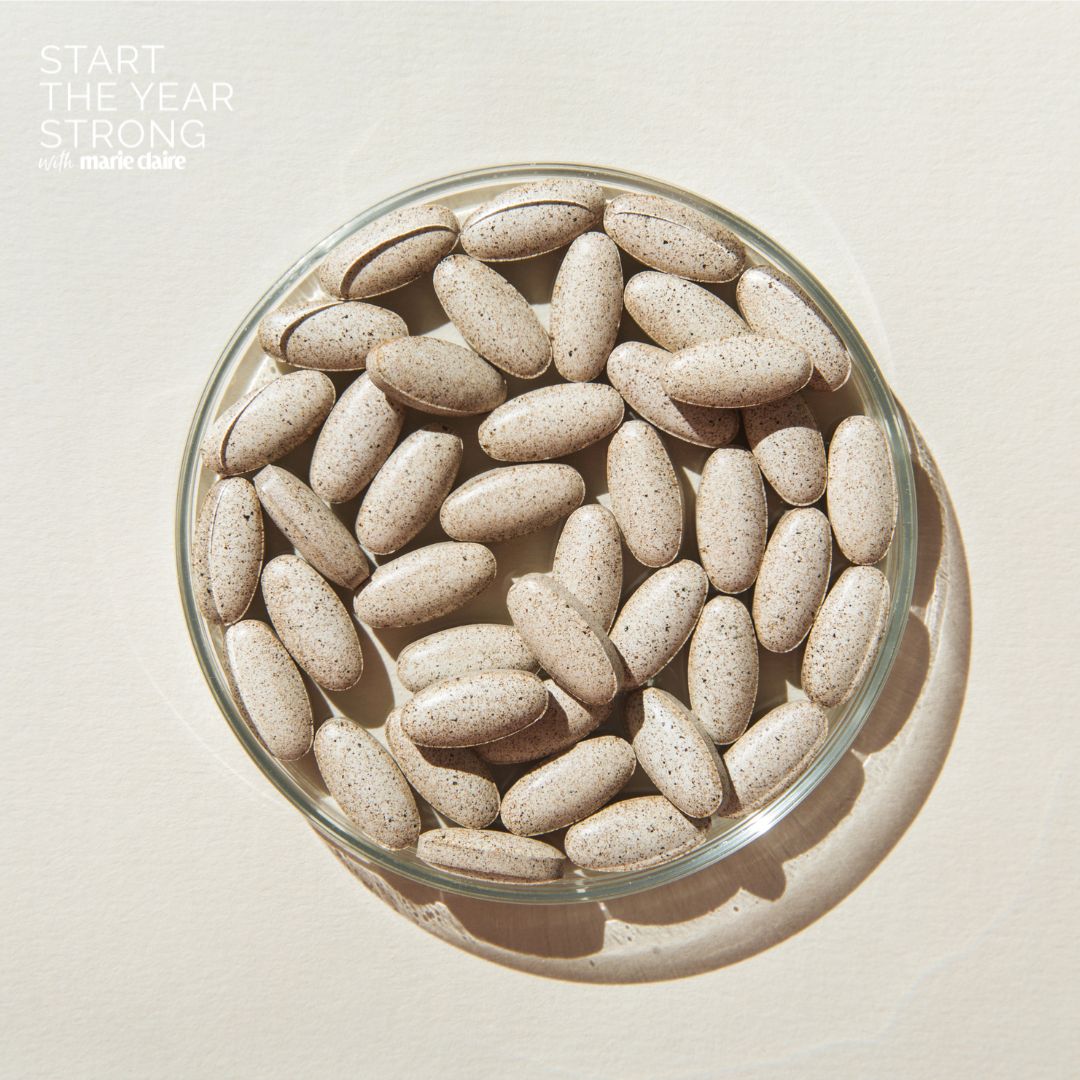 We asked anti-ageing experts for their honest take on the wildly popular NMN supplement - and they wouldn't recommend
We asked anti-ageing experts for their honest take on the wildly popular NMN supplement - and they wouldn't recommendCan a supplement ever really be the fountain of youth?
By Frances Daniels
-
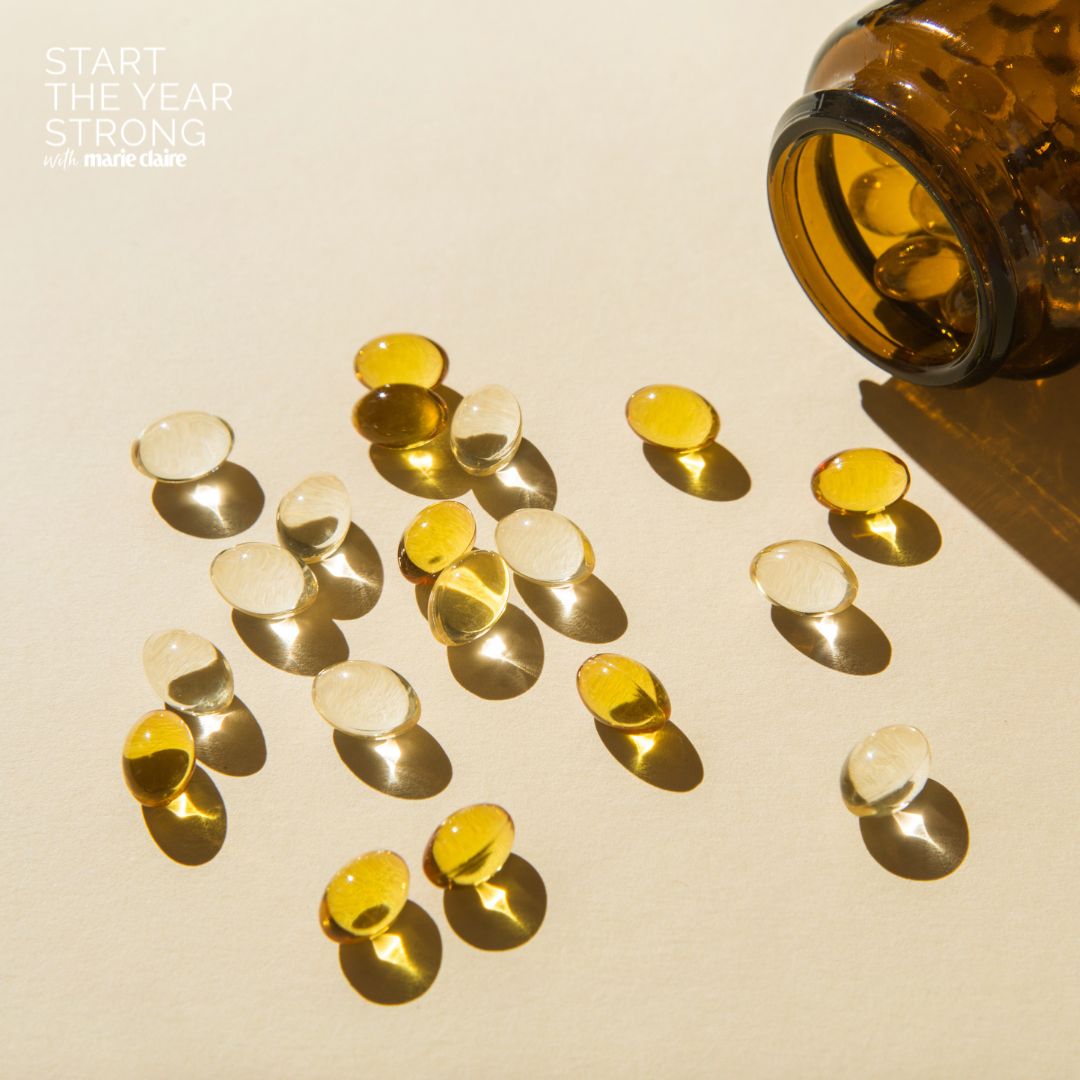 Overwhelmed with supplement advice RN? Us too - 6 nutritionists share the only supplements they take
Overwhelmed with supplement advice RN? Us too - 6 nutritionists share the only supplements they takeAdd these to basket for a wellbeing boost.
By Anna Bartter
-
 Castor oil is the latest viral TikTok trend promising the world - but top experts have some serious doubts about its effectiveness
Castor oil is the latest viral TikTok trend promising the world - but top experts have some serious doubts about its effectivenessIs it really a cure-all elixir?
By Camille Dubuis-Welch
-
 Kourtney Kardashian just launched an Ozempic style supplement - but experts are warning against taking it
Kourtney Kardashian just launched an Ozempic style supplement - but experts are warning against taking itIf it sounds too good to be true, then it probably is.
By Anna Bartter
